Key Information
Enrol Now
This course may run again in the future. To register your interest please contact us.
Course Information
Please note:
You can only purchase this course online if you are an existing CertAVP candidate. During the checkout process you will be required to enter your RVC username.
How to enrol as a new CertAVP candidate.
1. Evidence-based medicine, clinical reasoning and clinical audit
- Welfare assessment in the clinical setting and consideration of all ‘five freedoms’ when making decisions, for example, recognising when an animal is in pain and/or distress, or suffering in any other way
- Understanding basic ethical decision making, including consideration of all stakeholders and cost benefit analysis
- Knowledge of RCVS Guide to Professional Conduct, including animal welfare obligations, informed consent, euthanasia with or without owner consent, breaking client confidentiality, distinction between clinical and scientific procedure, relevant mutilations
- Basic knowledge of relevant legislation, for example, species-specific regulations and welfare codes, as well as some understanding of unnecessary suffering
- Critical literature review and authority of sources
- Novice and expert reasoning
- Clinical bias
- Value of numerical data in informed practice
2. Emergency care and first aid for all domestic species and wild animals
- Principles of basic cardiopulmonary resuscitation (CPR), the assessment of pain and its management (including both pharmacological and non-pharmacological methods of pain relief)
- Attend all domestic and wild animals (that might be encountered by a veterinarian in general practice in the UK) in an emergency and perform basic first aid where it is safe to do so
3. Euthanasia / Humane slaughter
- Demonstrate knowledge and understanding of the principles of euthanasia, and requirements in relation to humane slaughter of domestic animal species and wild animals in the UK
4. Veterinary public health, Animal Population Health & management of animal related risks
- Principles and requirements can be covered as applicable to the candidate's area of work and may be considered at international, national, regional, local, premises or practice level as appropriate
- Principles and purpose of sanitary controls in the animal environment: bio-security, isolation, import controls, quarantine, and asepsis
- Requirements and responsibilities of the veterinary surgeon in relation to country animal health status: notifiable disease legislation, appropriate reporting pathways, the principles of establishing security in the event of a suspect notifiable disease, principles of export and other health certification
- Principles of minimising potential personal and public risks related to exposure to animals / products of animal origin and requirements for incident reporting: zoonoses, physical injury, animal product-borne infection, medicines controls and residues, safe handling and transport of diagnostic samples, health and safety incident reporting and drug reactions
- Principles and purpose of management of disposal of animal-related risk materials: carcasses, cadavers, animal by-products, medicine and clinical waste.
Tutors
Jill Maddison, BVSc DipVetClinStud PhD FACVSc SFHEA MRCVS
Professor of General Practice
The Royal Veterinary College

